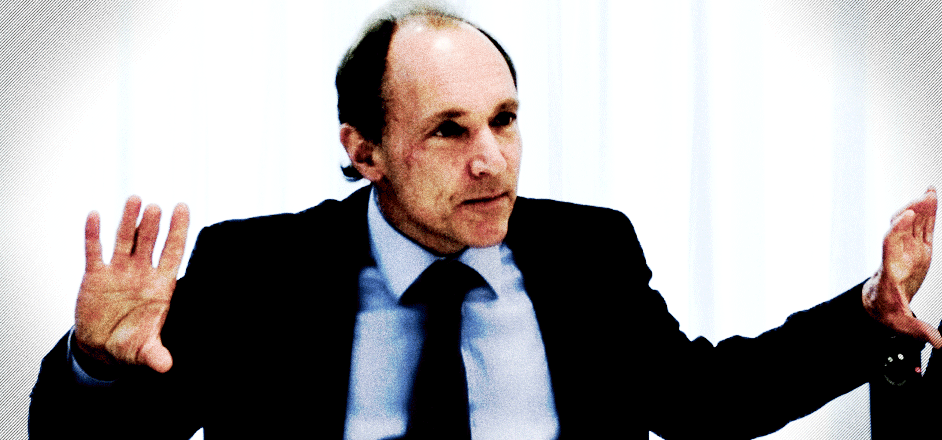That feeling you get when you create something that takes on a life of its own, spreads like wildfire, changes world culture, undermines global economies, spews hate speech, spreads misinformation and decides to start worshipping cats…
It’s not a feeling most human beings ever get to experience, but it's one that Tim Berners-Lee, the creator of the internet, feels every time he thinks about the world wide web.
Thirty years ago, today, March 13th, Berners-Lee, a young software engineer working at CERN came up with the idea for hypertext-transfer protocol (http) and several other foundational aspects of the Internet. He published a paper and the gears of a strange new cyber world began to turn.
Yesterday, on the eve of the anniversary of his creation, Berners-Lee released a letter and spoke with several reporters, actually decrying his own magnum opus. As he’s watched state-sponsored hacking stir discontent around the world, watched hate and ignorance gush from the Web, and watched “fake news” spreading oily confusion, he has started to fear for what his baby has become.
“[People] are all stepping back suddenly horrified after the Trump and Brexit elections realizing that this web thing that they thought was so cool has actually not necessarily been serving humanity very well.” Berners-Lee said, adding that this 30-year anniversary offers us an opportunity for reflection. An opportunity to think about how far the Internet has come and how far it still has to go.
Berners-Lee acknowledges that the Web has created a lot of opportunity, allowed for much more expansive flows of information and that it has given marginalized people a louder voice. But he also says, “it has also created opportunity for scammers, given a voice to those who spread hatred, and made all kinds of crime easier to commit.”
We have a choice, Berners-Lee says. A choice to try and grow and use this new tool in a constructive way, to benefit society, or to use it as a weapon against ourselves.
“It’s our journey from digital adolescence to a more mature, responsible and inclusive future,” he wrote. We’re learning how to incorporate this strange futuristic, almost telepathic connective service into our lives and we still have a lot to learn.
Berners-Lee never could have imagined the Internet as it exists today, all those years ago. If he could have, would he have still pursued his vision? Would he have created this monster anyway?
That’s a question that only he can answer for sure. But no doubt he fears that someday, if we don’t gain control of this cyber-beast of his, he might look upon his creation and hear J. Robert Oppenheimer’s voice in the back of his mind:
“Now I am become death, destroyer of worlds.”






Leave a Reply
You must be logged in to post a comment.